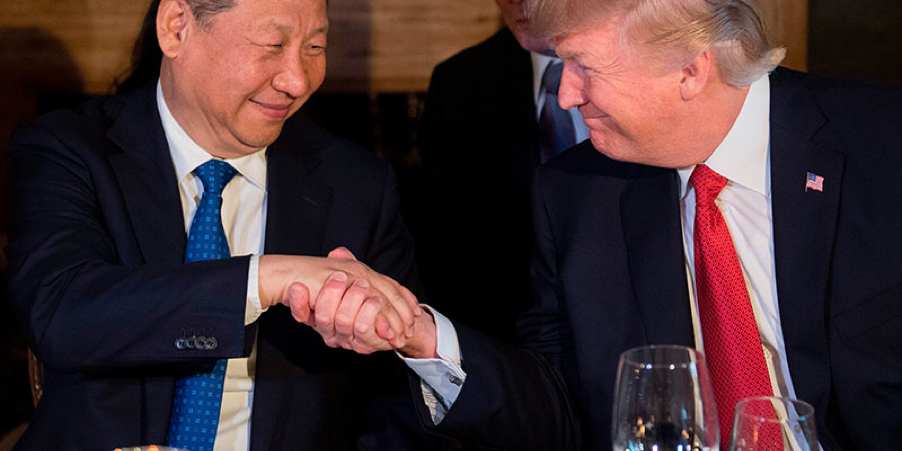THE presidents of the world’s two biggest economies, China and the United States (US) in their phone talk on Thursday 5 June paved the way for the recalibration of the “giant ship of China-US relations.”
The phone talk between President Xi Jinping and President Donald Trump was held against the backdrop of tensed relations following the trade war initiated against China by Trump, and the US Defense Chief Pete Hegseths provocative speech against China at the 22nd Shangri-La Dialogue.
High-level negotiations between China and the US were held in Geneva, Brussels, on Saturday 10 May following the Trump-initiated trade war between the two countries.
The negotiations led to each side suspending 24 percent of their respective 34 per cent tariffs on each other for 90 days, retaining a 10 per cent baseline, while the US removed recent additional tariffs and China rolled back retaliatory and non-tariff measures imposed since early April.
Hegseth, in his speech at the 22nd Shangri-La Dialogue in Singapore on Saturday 31 April, urged Asia-Pacific countries to increase their military spending to five per cent of GDP to counter perceived threats from China in the region, including the South China Sea and the Taiwan Strait.
China’s Ministry of National Defense slammed the speech as being filled with hegemonic logic and was a serious provocation of China’s sovereign rights and interest and was a distortion of China’s policy positions.
During the phone call, President Xi pointed out that recalibrating the direction of the giant ship of China-US relations requires us to take the helm and set the right course. It is particularly important to steer clear of the various disturbances and disruptions.
At the suggestion of the US side, the two countries’ lead officials recently held an economic and trade meeting in Geneva. It marked an important step forward in resolving the relevant issues through dialogue and consultation, and was welcomed by both societies and the international community.
It proved that dialogue and cooperation is the only right choice. The two sides need to make good use of the economic and trade consultation mechanism already in place, and seek win-win results in the spirit of equality and respect for each other’s concerns. The Chinese side is sincere about this, and at the same time has its principles. The Chinese always honor and deliver what has been promised. Both sides should make good on the agreement reached in Geneva.
China has been seriously and earnestly executing the agreement. The US side should acknowledge the progress already made, and remove the negative measures taken against China. The two sides should enhance communication in such fields as foreign affairs, economy and trade, military, and law enforcement to build consensus, clear up misunderstandings, and strengthen cooperation.
President Xi emphasized that the US must handle the Taiwan question with prudence, so that the fringe separatists bent on “Taiwan independence” will not be able to drag China and America into the dangerous terrain of confrontation and even conflict.
President Trump, in turn, said he has great respect for President Xi, and the US-China relationship is very important, and that US wants the Chinese economy to do very well.
The US and China working together can get a lot of great things done. The US will honor the one-China policy.
The meeting in Geneva was very successful, and produced a good deal. The US will work with China to execute the deal. The US loves to have Chinese students coming to study in America.
President Xi also welcomed President Trump to visit China again, and President Trump expressed heartfelt appreciation.
The two Presidents agreed that their teams should continue implementing the Geneva agreement and hold another round of meeting as soon as possible.
By DELI-SHARON OSO
In Beijing, China









